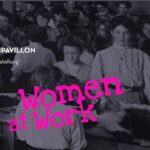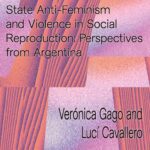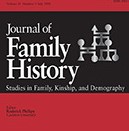 Technisches Museum Wien
Technisches Museum Wien
Die historischen Formen der Erwerbsarbeit von Frauen waren im Frühsommer 2023 das Thema einer Sonderausstellung im Technische Museum Wien. Anlass war das 150-Jahres-Jubiläum der Wiener Weltausstellung von 1873, wo der sogenannte „Frauenpavillons“ erstmals die Arbeitswelt von Frauen thematisiert – und damit Geschichte geschrieben hat. Weiterlesen … (Web)
Website „Women at Work“ (Web)
Als Erweiterung der analogen Ausstellung wurde auch eine neue multimediale Online-Ausstellung gestaltet. Diese bietet rund 1.000 hochauflösende Abbildungen und Volltext-Digitalisate aus dem einzigartigen Bestand des Technischen Museums Wien zur Weltausstellung – sowie weiterführend vielfältige Verlinkungen zu Schriften, Archivalien und Sammlungsobjekten zur Geschichte und zu den Anfängen der österreichischen Frauenbewegungen:
Rubriken: Perspektiven | Heldinnen | Bildung | Arbeit | Depot
Die Website wird gleichermaßen als Online-Ausstellung und als Forschungsplattform verstanden. Hier wird möglich, was beim Museumsbesuch meist unmöglich ist: Die Recherche im Depot (Web)


 fernetzt. Verein zur Förderung junger Forschung zur Frauen- und Geschlechtergeschichte
fernetzt. Verein zur Förderung junger Forschung zur Frauen- und Geschlechtergeschichte  FemInfo und FemWiss – Verein feministische Wissenschaft Schweiz
FemInfo und FemWiss – Verein feministische Wissenschaft Schweiz Neues Veranstaltungsformat des Forschungsschwerpunktes Frauen*- und Geschlechtergeschichte der Historisch-Kulturwissenschaftlichen Fakultät der Univ. Wien
Neues Veranstaltungsformat des Forschungsschwerpunktes Frauen*- und Geschlechtergeschichte der Historisch-Kulturwissenschaftlichen Fakultät der Univ. Wien  Verein Frauen*geschichte(n)
Verein Frauen*geschichte(n)  8. Konferenz der Schweizerischen Gesellschaft für Geschlechterforschung (SGGF)
8. Konferenz der Schweizerischen Gesellschaft für Geschlechterforschung (SGGF)  Opening Event Tenure Track Professorship Economic Anthropology at the Univ. of Vienna of Andreas Streinzer
Opening Event Tenure Track Professorship Economic Anthropology at the Univ. of Vienna of Andreas Streinzer  Journal of Family History; Guest Editors: Cecilie Bjerre & Gareth Millward (Univ. of Southern Denmark), and Laura Kings (Univ. of Leeds)
Journal of Family History; Guest Editors: Cecilie Bjerre & Gareth Millward (Univ. of Southern Denmark), and Laura Kings (Univ. of Leeds)  Institut für die Erforschung der Habsburgermonarchie und des Balkanraumes der ÖAW: Project “Dynastic Continuity in an Age of Crisis? The Habsburgs in the Revolutionary and Napoleonic Wars (1792–1815)”
Institut für die Erforschung der Habsburgermonarchie und des Balkanraumes der ÖAW: Project “Dynastic Continuity in an Age of Crisis? The Habsburgs in the Revolutionary and Napoleonic Wars (1792–1815)”